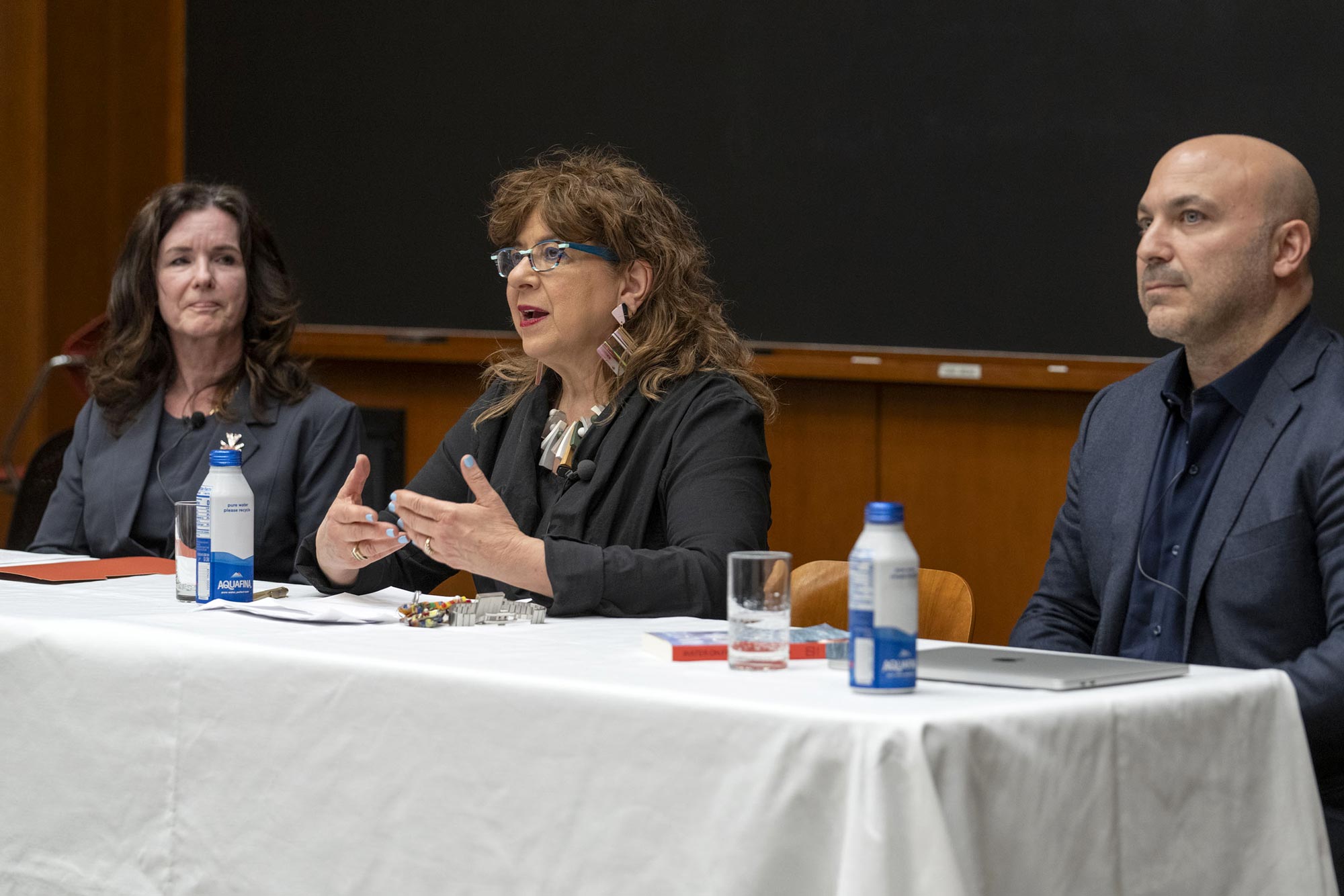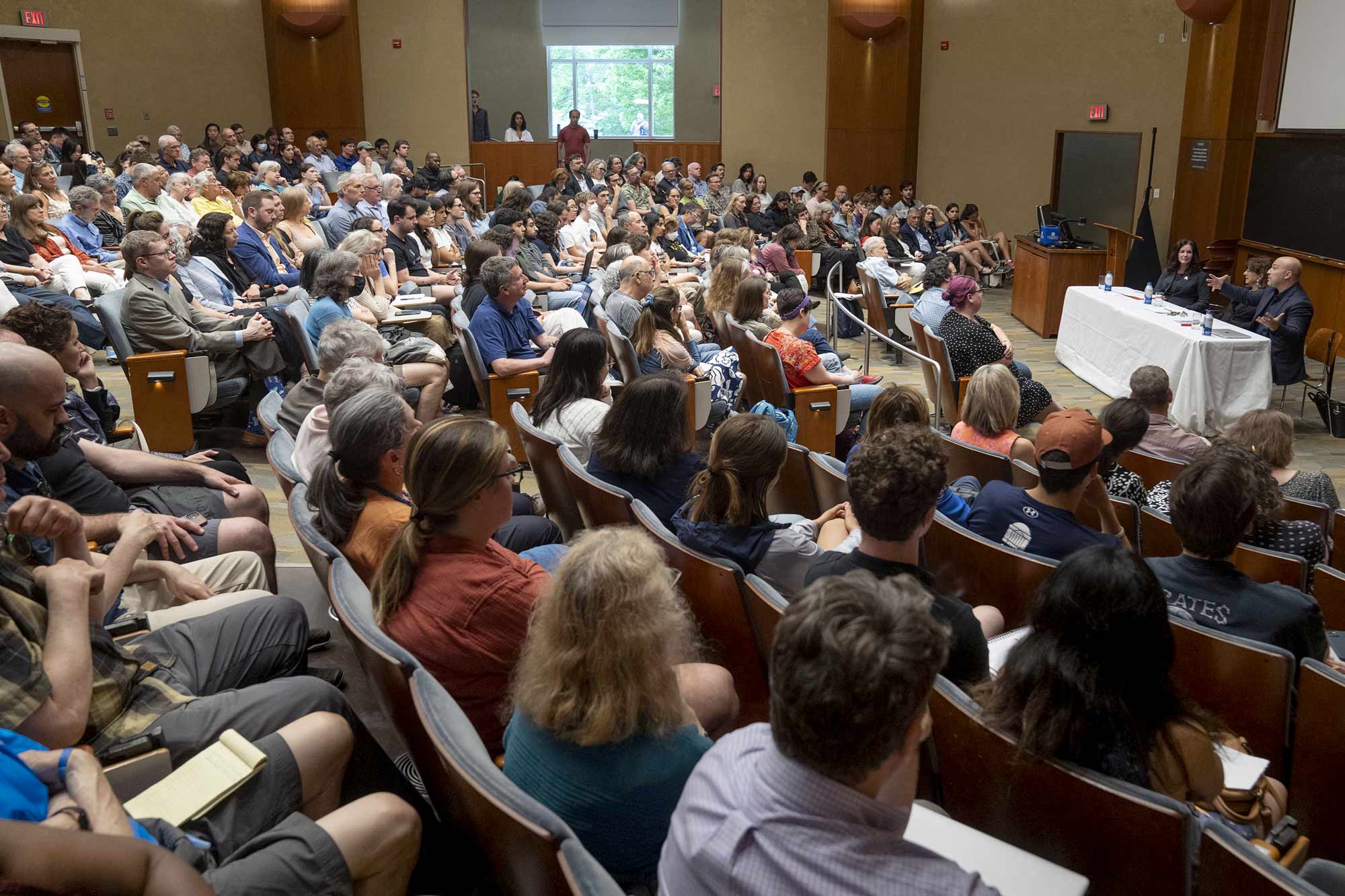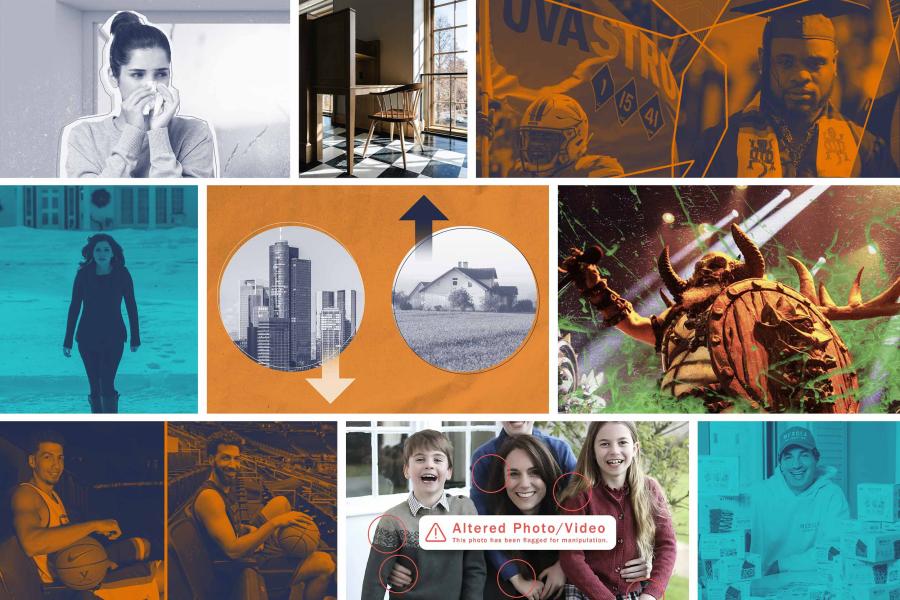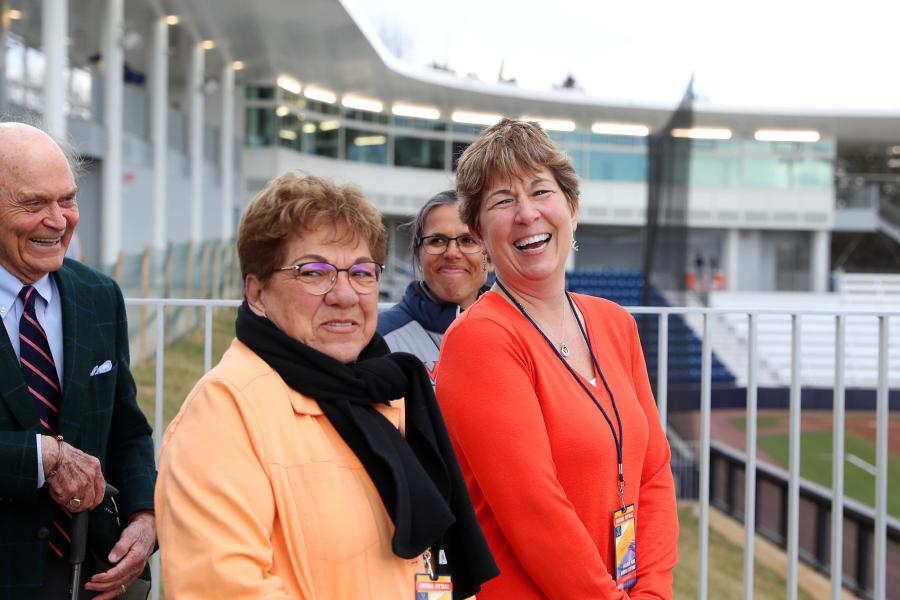A standing room only crowd of more than 150 University of Virginia community members filled Nau Hall’s auditorium Tuesday afternoon to hear from a pair of Dartmouth College professors celebrated for their ability to encourage civil debate about Israel and Palestine on college campuses.
Tarek El-Ariss, Dartmouth’s chair of Middle Eastern studies, and Susannah Heschel, Dartmouth’s chair of Jewish studies, taught and collaborated on projects long before Hamas’ Oct. 7 attack on Israel and Israel’s ongoing counterattack on Gaza. But since then, the pair have visited college campuses across the country to share the lessons they’ve learned about creating productive classroom environments that encourage respectful debate and disagreement for students from all backgrounds and life experiences.
Their efforts have been featured in national media outlets including CNN and NPR.
“I take great inspiration from the Civil Rights Movement because of what it taught us about dialogue and how we talk to our opponents,” said Heschel, whose Jewish theologian father worked with the Rev. Martin Luther King Jr. “It’s so important to convey respect to our opponents to create respect in those relationships.”
Christa Acampora, dean of the College and Graduate School of Arts & Sciences, moderated the Tuesday event, titled “Enabling Difficult Conversations.” In her welcoming remarks, she acknowledged it can be hard to frame a debate in a set of common terms.
“A starting place, though, can be recognition of our shared humanity and embracing that for its richness, complexity and possibility,” Acampora said. “The fundament of that is respect.”
Acampora, who also chairs the University’s Task Force on Religious Diversity and Belonging, went on to describe the importance of discussion about difficult topics in university settings. “One thing that defines a university is that we have the extraordinary privilege, opportunity and responsibility to learn together, not just to seek individual enlightenment, but to join in common cause for shared knowledge and understanding.”
At Dartmouth, the visiting professors said, cultivating a campus atmosphere where people from a variety of backgrounds and perspectives can discuss thorny topics begins with encouraging them to recognize each other’s human dignity.
Nourishing those relationships and helping students feel more comfortable sharing their concerns means finding opportunities outside the classroom for them to engage with each other and with faculty, El-Ariss said. Within three days of the Oct. 7 attack, El-Ariss and Heschel had organized two public forums for members of the Dartmouth community to ask questions of faculty and share the emotions sparked by the conflict.

Christa Acampora, left, dean of the College and Graduate School of Arts & Sciences, moderated the discussion with Dartmouth College professors Susannah Heschel and Tarek El-Ariss. The pair’s UVA visit was part of a cross-country college tour to share what they have learned about having productive and respectful conversations about violence in the Middle East. (Photo by Dan Addison, University Communications)
The success of those forums led them to organize “dialogue pairs” of faculty speakers to meet with students outside the setting of a lecture hall. They met with students in their dorms, at their social clubs and breakfast outings, El-Ariss said. It’s important to create that space where students feel respected and encouraged to express their opinions, he explained.
“We wanted to bring these conversations to the places where students feel comfortable,” said El-Ariss, whose new book, “Water on Fire: A Memoir of War,” chronicles his childhood in a war-torn Lebanon, his experiences of displacement in Europe and Africa, and his family’s eventual move to a series of northeastern American towns. “We have to be pedagogically creative especially to deal with a situation that is so difficult emotionally.”
El-Ariss said he was impressed by the UVA students who joined him and Heschel earlier in the day to learn about their work at Dartmouth facilitating respectful dialogues on a variety of topics.
“What was nice was that by the end of the session, they were talking to each other without needing us to say anything,” he said. “We just handed it to them. They are the future, and we can say anything you want. ... But in the end, it’s their world, and we need to respect them and trust that they will find a way. Maybe right now things are very tough; they’re very tough on everyone … but we have to trust that they’re going to find it.”
Michael Newell-Dimoff, a second-year student, said he would welcome more opportunities for University faculty from different disciplines, like Heschel and El-Ariss, to meet with students in similar forums.
“I have friends who are involved in student activist groups around campus, so I have been aware of and involved in a lot of student-to-student discussions about the conflict. But I think forums like this where faculty are taking a larger role in the discussion could be good because then it’s breaking that barrier between students and faculty and between students and the administration,” Newell-Dimoff said.
Fourth-year student Simeon Belgrave said public forums such as Tuesday’s are an important way to get people with differing viewpoints in the same room to explore their views.
“It gives people a chance to talk with other people that you haven’t met before, people who are from different places with different perspectives,” said Belgrave, graduating this month with a computer science degree and a philosophy minor. “I think that’s helpful. We should have more dialogues that give people these opportunities.”
Media Contact
Senior Writer, Office of the Dean College and Graduate School of Arts & Sciences
ljp2h@virginia.edu 434-243-3440
Article Information
May 17, 2024




